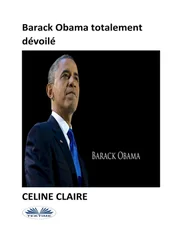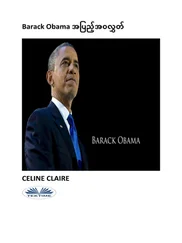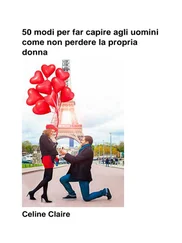Baboo hoped that by the time they hit their various grades at Brearley they would be fluent in English. They weren’t. Probably because all that summer they stuck mostly to one another. They had their own small beach below the house, and their grandparents and their mother often invited other families over to swim and picnic and so the girls got away with learning a few necessary phrases and yammering among themselves. When they all drove over to the club beach in the Packard and trekked across the sand with their baskets and towels—“like Lawrence in Arabia,” according to Baboo—the girls hung together. Bobby and Celine did, and Mimi ran after and lagged behind and rarely cried, and was so often covered head to toe in fine white sand she looked like a powdered doughnut. Not to say that they did not understand English, they did. They just refused, or did not know how, to speak it.
During that summer Celine remembered that Baboo communicated with their father by regular mail, by telegram, and by the rare phone call, which he made, because of the disruptions caused by the war, from the American embassy in Paris. Harry had stayed behind. He was safeguarding Morgan’s interests in what was left of Europe and making preparations for his eventual flight. Celine remembered her mother bent over the rolltop desk in her room carefully writing letters to her husband. The room had a little balcony just big enough for two people to stand on, and it faced north toward the sound and the Connecticut shore, which could be seen over the trees if someone hoisted Celine. Through its screen door came the perpetual angelus of the bell buoy in the channel.
Celine has an image of Baboo bent over the small desk composing her letter—her handwriting was perfect, Victorian: It unfurled itself across the pages in rulered lines of slants and loops where there had never been a ruler. The oversize capitals at the beginnings of paragraphs had the formality of chess pieces. The signature below “Your Ever Loving Wife,” Barbara, spun crisply through the B s and twirled away through the last a with the self-discipline of a great waltzer—which she was—and the flourish beneath it had the surprising dash and speed of passion.
Celine thought later that all love letters should look like that: that the recipient need not read the content but only glance at the hand to feel its impact. And then, in the middle of writing, her mother would stand and stretch, open and close her cramping fingers, and go out to the balcony for some air. Sometimes she seemed wrapped in fog, hazy, distant. Sometimes she pulsed like a firefly. Celine remembered.
And then one afternoon while Celine was drawing egrets and crabs on her big artist’s pad on Baboo’s floor, her mother came briskly to the desk with a letter from Harry—Celine recognized the blue airmail envelope, heard the tinkle of her mother’s bracelets—and Baboo took up a silver letter opener and sliced the top and drew out the single translucent sheet and began to read.
She was bent over the rolltop and Celine saw her shoulders begin to quiver. A movement that spread down her arms and back the way a sudden strong wind moves through trees. And then her mother stood abruptly, keeping her back to her daughter, and made her way to the little balcony, weaving almost like a passenger moving on a deck in a rough sea, and stood under the sky, her hands gripping the wooden railing, as if she were holding on for dear life.
Only for a minute. Celine saw her mother’s back stiffen. Expand with a great indrawn breath, saw her mother stand erect and breathe. Saw her hands come to her face, which was by then lifted to the blue waters of the sound, and wipe her cheeks with a gesture Celine would never forget and only saw from behind: Unhurried, decisive, Baboo moved both hands in sync from what must have been the corners of her eyes, or the bridge of her nose—moved them over her cheeks outward to her temples and then lifted them away and held them up palms outward toward the sea and spread her fingers. Held them there for a moment as if to dry. Like the wings of a seabird. And then she turned to her daughter and in a voice that was pitched a little higher than normal, said, “What are you drawing, Ciel? Birds again? How beautiful.”
The contents of the letter were never discussed, but the ramifications became apparent over the next months. Baboo, if anything, became more attentive to the girls. She took them more often to the island’s beaches. They branched out from Gaga’s little strand and the familiar white sand of the club beach. They drove a few miles up island just past the big painted footprint in the road to the long stony stretch of Chocomount, which always had rougher waves and felt wilder, and had the most gorgeous thicket of thorny wild rose. They had to walk through it on the narrow path and Celine always lingered, inhaling the fragrance of the delicate flowers whose petals folded back in the sea wind. She picked the berrylike rose hips that she chewed and spat out. She liked to pretend it was betel nut and that she was an Indian woman on the way to the shore to gather snails. For Celine, the sight of the pale pink flowers and their sweet scent would for the rest of her life remind her of this time.
If Baboo was sometimes distracted and seemed to move in a mist of sadness, she was also more tender with her daughters than she had ever been. She read to them from books more often when she put them to bed (one of the latest had been Kim from which Celine got the betel-nut thing); she often eschewed the formal dining room, with apologies to Gaga, and ate with the girls at the long table beneath the windows in the kitchen. She took them on walks to look for bird nests, and they all practiced together how to whistle like a bobwhite and a whip-poor-will, and hoot like a barn owl. Bobby could make the ugly alarmed croak of a heron, which got the biggest laughs.
Of course the girls could feel their mother’s grief but they had nothing to attach it to and so responded with a tenderness of their own. They reached for her hand when they were walking over the uneven stones at Chocomount, and they curled up in her lap to shelter from the wind and sun in the fragrant shade that smelled of coconut Coppertone and the particular salty sweetness of their mother’s freckled skin, and they breathed in her sadness with her love.
In mid-June Harry Watkins also fled Paris. Baboo knew how the girls pined for their father, and she loved them too much to ever let her own troubles get between him and his daughters; she told them that their father had left the house on rue de Lille and was coming across on a grand boat and was bringing their cat, Chat. They would see him in New York at the end of the summer. The girls were beside themselves. It would have been hard to say what caused more delight—the prospect of seeing Harry again or of squeezing Chat, who, remarkably, loved to be squeezed and seemed even to enjoy being picked up unskillfully by Mimi, under the forelegs, and run around the house, eyes huge and striped gray body dangling.
Bobby, who was hard to excite, and who had not been listening closely, asked excitedly, “ Et quand va-t-il arriver ici? He promised he would jump with me off Grayson’s dock!”
And Baboo stiffened and said that Papa had urgent business in New York and would not be coming to the island but would wait for them there.
The three girls looked at one another. In many ways, despite the span of their ages, they were as close as triplets. They had sensitive social barometers—even Mimi at five—and they were sensing the import of this statement without having a clue as to its meaning, and the pressure in the room dropped as before a nor’easter.
Celine, who was even more attached to Harry than the others, said, “C’est entendu. Il peut venir pour le weekend! Il nous emmenera pêcher!”
Читать дальше












